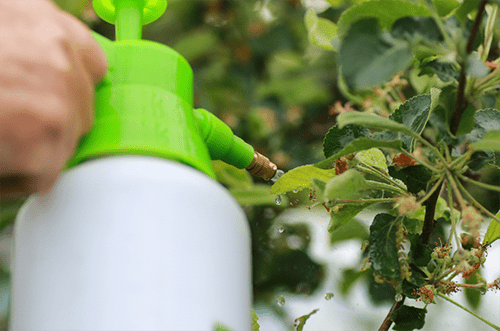What are Pesticides? Poison Safety Tips

What are pesticides? Maintaining a beautiful and healthy yard and home that is free from vermin is no small feat. This is something that many homeowners take pride in. However, there are many common products that can pose a significant risk to both people and pets.
Here are some of the most common poisonous products used in yard work and prevention tips to keep you and your loved ones safe. Recognize what are pesticides and how to avoid poisoning.
Herbicides
Herbicides are chemicals used to kill unwanted weeds and plants. There are a wide variety of herbicides that can be purchased for use at home. Common ingredients in herbicides include glyphosate, 2,4-D, and dicamba. Herbicides can cause toxic effects during application from contact with the skin, eye, or inhalation.
Insecticides
Insecticides are chemicals used to kill insects and pests in the yard. They contain neurotoxic substances that can cause skin irritation, respiratory problems, and even cancer.
Fertilizers
Fertilizers contain nitrogen, phosphorus, and potassium, which help plants grow. When using fertilizers, be vigilant near areas where children play. Poison Control Centers are often contacted after a child has been accidently exposed to the product, either the granules are ingested from the lawn itself or from a bag that has been left out.
Rodenticides
Rodenticides are chemicals used to kill rodents, like mice, rats, or gophers. These products can be used inside and outside of the home. Common rodenticides include blood thinners (diphacinone), brain toxins (bromethalin), or high dose vitamin D (cholecalciferol) to kill rodents. These products often come in pellets or baits, with or without child or animal resistant bait stations.
To prevent rodenticide poisoning, it is important to follow the manufacturer’s instructions for usage and disposal. If in a home with small children or animals, consider using a product that comes with a bait station. Place the bait in areas that are inaccessible to pets and children and dispose of dead rodents safely. Keep the package, though, in the event of an exposure. Dispose of bait when no longer needed for rodent poison control.
Prevention Is Key
Here are some tips to prevent accidental exposure to any of these products:
- Wear protective clothing, gloves, and eye goggles.
- Follow the manufacturer’s instructions for usage and disposal of the chemical.
- Avoid spraying pesticides in areas where pets and children play.
- Do not over-apply fertilizer and avoid applying it near water sources to prevent runoff into the water supply.
- Store all household pesticides (indoor AND outdoor) in a safe and secure location. Keep them out of reach of children and pets and store them in their original containers with labels intact.
Check out our most recent infographic we developed in collaboration with the National Pesticide Information Center for more prevention and safe storage tips.
Poison Help Is Here for You
By taking these prevention measures, you can maintain a beautiful and healthy home while keeping your loved ones safe. If poisoning occurs, call Poison Help to be connected to a poison control center nearest you (1-800-222-1222) or seek medical attention immediately and bring the container or label of the poison to the medical facility. Our website is also available 24/7 to answer your pesticide-related questions at https://www.poisonhelp.org/.